Thoracic Aortic Aneurysm Treatment in Israel
The aorta is the body's largest blood vessel in the body, running from the left ventricle to the abdomen (where it splits into smaller arteries). The term thoracic aortic aneurysm describes ballooning or widening of its thoracic due to wall weakness. Left untreated, the condition may become life threatening. Fortunately, we have vast experience in arranging thoracic aortic aneurysm treatment in Israel, and have successfully helped dozens of patients with this condition. By choosing Manor Medical Center you are opting for professional medical care by the best cardiovascular surgeons in Israel.
Treatment
We ask that you send us previous imaging studies showing the aneurysm (provided such exist) before you travel to Israel, so our specialists can review them.
Diagnosis
- Extensive blood workup (CBC, CMP, lipid profile, electrolyte levels and coagulation factors)
- High-resolution CTA (computed tomography angiography) scan
- Vascular surgeon consultation
Thoracic Aortic Aneurysm Repair Surgery
The treatment is performed by means of an open chest surgery. During the procedure, a cardiac surgeon will insert a specialized stent (or several stents – depending on the findings) into the area of the aneurysm to reinforce the blood vessel.
- Routine preoperative preparation (ECG, chest X-ray and an anesthesiologist consultation)
- Operative intervention and 3 days of hospitalization
- Disposable surgical materials and 1 stent
- Intraoperative neurophysiological monitoring
- Additional stents (if required)
The operation will last for at least 3 hours. After introduction of contrast material (through the femoral artery), a cardiac surgeon will make a chest incision; an invasive radiologist will then insert the stent(s) under visual guidance.
Following the surgery you will remain in the ICU for 24 hours, and then be transferred to a cardiology ward for 2 additional days. The date of your discharge will depend on two symptoms: intensity of pain in your femoral area and fever. A Doppler US scan of the femoral arteries will be performed to assess their condition. The fever does not require special treatment (other than analgesics) – you can be discharged once it's dropped below 38°C.
The sutures are removed on day 10 following the thoracic aortic aneurysm repair surgery. You will also undergo a repeat CTA scan on the same day.
Causes & Symptoms
Atherosclerotic changes are considered to be the most common cause of thoracic aneurysms. However, they may also develop as a result of trauma or inflammatory diseases. Certain tissue disorders (such as Marfan syndrome) are also considered to be a contributing factor.
Most aneurysms cause no symptoms and are discovered accidently during chest CT scans performed due to other indications. A minority of the patients will experience strong compressing chest and/or back pain, breathing difficulties, hoarseness and coughing (caused by the dilated part of the artery compressing the lungs and airways).
Small aneurysms measuring up to 5 cm in diameter usually don’t require immediate treatment and can be monitored (by visual investigations at least once per year).
Larger pathologies are considered a serious health risk as their rupturing can lead to CVA, infarction and even death. This is why if you’ve been diagnosed with the condition you should seek treatment as soon as possible.

